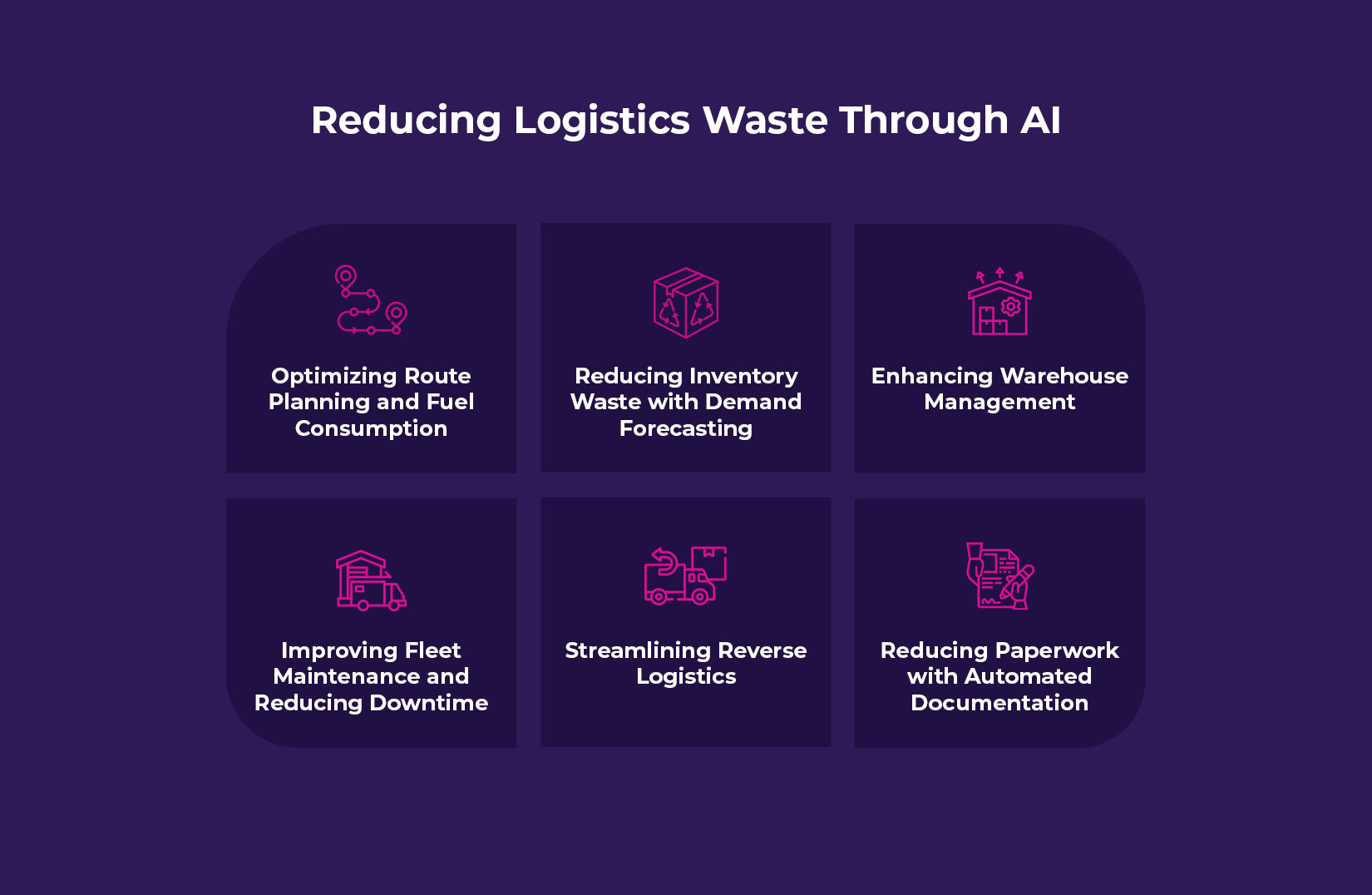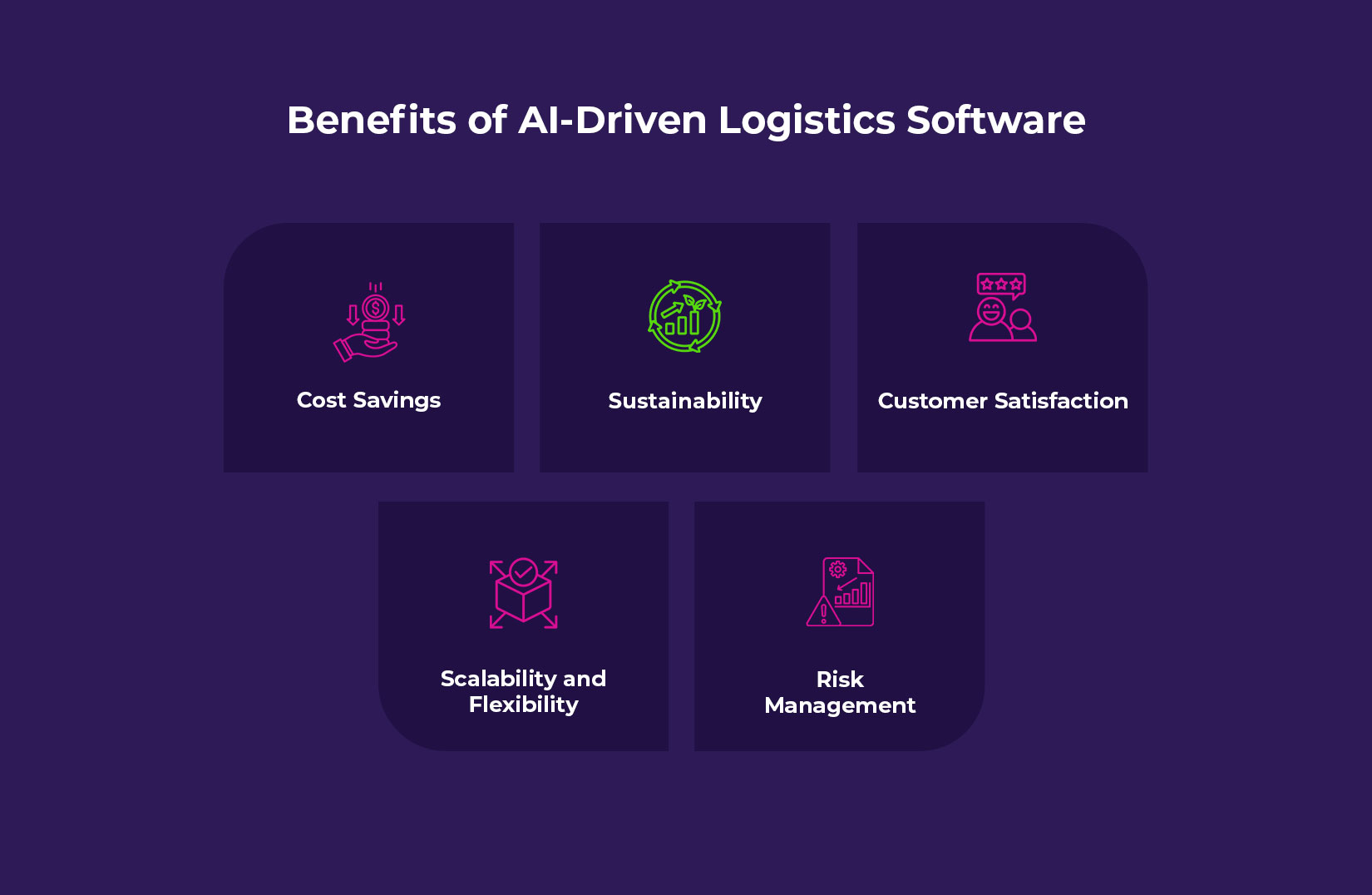
In today’s fast-paced and competitive business environment, reducing waste in logistics has become a top priority for organizations. Waste, whether it’s in the form of time, resources, or excess inventory, directly impacts profitability and operational efficiency. This is where Artificial Intelligence (AI) steps in, offering advanced solutions to minimize waste and streamline logistics operations. From optimizing routes to improving demand forecasting, AI-powered tools and logistics software are transforming the way companies manage their supply chains.
AI integrates data analysis, machine learning, and automation to enhance decision-making in logistics. By leveraging AI, logistics companies can analyze vast amounts of data, identify inefficiencies, and implement corrective measures quickly. Let’s explore how AI, when integrated into logistics management software, can reduce waste and improve overall supply chain efficiency.
Reducing Logistics Waste Through AI

1. Optimizing Route Planning and Fuel Consumption:
Inefficient route planning leads to excessive fuel consumption, increased vehicle wear, and delayed deliveries. AI-driven logistics software optimizes routes by analyzing traffic patterns, weather conditions, and delivery schedules in real-time.
For example, UPS uses an AI system called ORION to optimize delivery routes. It helps save 10 million gallons of fuel annually and reduces carbon emissions by 100,000 metric tons. According to McKinsey, AI-driven route optimization could save the global logistics industry over $400 billion annually. These savings come from reducing fuel consumption, maintenance costs, and delivery times.
2. Reducing Inventory Waste with Demand Forecasting:
Overstocking leads to excess inventory waste, while understocking causes missed sales and dissatisfied customers. AI-powered logistics management solutions use predictive analytics to forecast demand accurately, helping businesses maintain optimal inventory levels.
A McKinsey study shows that AI-driven demand forecasting can reduce forecasting errors by up to 50%, significantly minimizing inventory waste. According to Statista, the global AI supply chain market is projected to grow from $3.45 billion in 2021 to $16.7 billion by 2027. This growth reflects the increasing adoption of AI to improve supply chain efficiency.
3. Enhancing Warehouse Management:
Warehouse operations often involve manual processes that are prone to errors and inefficiencies. AI-powered logistics management software automates tasks such as inventory tracking, picking, and packing, reducing operational waste.
For example, Amazon uses AI-driven robots to streamline warehouse operations, leading to faster order fulfillment and reduced labor costs. A PwC report suggests that AI in warehouse management can increase efficiency by up to 40%. It helps reduce waste caused by human error and inefficiency.
4. Improving Fleet Maintenance and Reducing Downtime:
Unscheduled vehicle breakdowns cause significant delays and waste. AI-powered predictive maintenance tools analyze vehicle performance data to detect potential issues before they escalate into major problems.
A logistics management system equipped with AI can monitor engine health, tire pressure, and fuel efficiency in real-time. According to Deloitte, predictive maintenance can reduce maintenance costs by 20% and unexpected breakdowns by 70%. It also improves fleet efficiency by 25%, leading to fewer delays and reduced waste
5. Streamlining Reverse Logistics:
Reverse logistics involves handling returns, recycling, and disposal, all of which can generate waste. AI-based logistics software streamlines returns processing, ensuring goods are recycled or resold efficiently.
AI can analyze return patterns to identify root causes and suggest improvements in product quality or packaging. Research by Capgemini indicates that optimizing reverse logistics through AI can reduce return-related costs by up to 30%. This approach also helps minimize waste in the reverse supply chain.
6. Reducing Paperwork with Automated Documentation:
Traditional logistics processes often involve extensive paperwork, leading to inefficiencies and waste. AI-powered logistics management solutions automate documentation tasks such as digital invoicing and shipping labels.
This automation saves time and reduces the environmental impact of paper-based processes. Companies adopting AI-driven documentation systems report significant reductions in administrative costs. Gartner reports that AI automation can cut administrative tasks by 50%, freeing resources for more strategic activities.
Benefits of AI-Driven Logistics Software

Adopting AI in logistics brings numerous benefits, including:
1. Cost Savings:
By minimizing waste and improving operational efficiency, AI-driven logistics management software can significantly reduce costs. According to a study by McKinsey, companies that adopt AI in their logistics operations can achieve cost savings of up to 15%. These savings span various areas across the supply chain.
2. Sustainability:
AI helps companies adopt eco-friendly practices, such as reducing fuel consumption and paper waste, contributing to environmental sustainability. According to the World Economic Forum, AI can help reduce global greenhouse gas emissions by up to 4% by 2030. This reduction is achieved through smarter logistics operations.
3. Customer Satisfaction:
Faster deliveries, accurate tracking, and efficient returns processes enhance the overall customer experience. A study by PwC reveals that companies implementing AI-driven logistics management solutions report a 20% improvement in customer satisfaction rates.
4. Scalability and Flexibility:
AI-driven logistics software enables businesses to scale their operations efficiently. Whether it’s managing seasonal demand spikes or handling complex supply chains, AI ensures smooth logistics operations without compromising efficiency.
5. Risk Management:
AI can proactively identify risks in the supply chain, such as potential delays or disruptions, allowing companies to take preventive measures. This reduces the likelihood of waste caused by unforeseen issues.
Future of Logistics Management with AI
The future of logistics management will be heavily influenced by AI and machine learning technologies. Here’s what to expect:
1. Increased Automation:
The use of AI-driven robotics and automation in warehouses will continue to grow. According to Statista, the global market for warehouse automation is projected to reach $30 billion by 2026.
2. Smarter Logistics Software:
Logistics management systems will become more intelligent, offering advanced features such as real-time analytics, autonomous decision-making, and predictive capabilities.
3. Sustainability Interviews:
AI will play a pivotal role in helping companies achieve their sustainability goals. From reducing carbon footprints to minimizing waste, AI-powered logistics solutions will drive eco-friendly practices.
4. Enhanced Supply Chain Visibility:
AI will improve supply chain visibility, allowing companies to monitor every stage of the logistics process. This transparency will reduce waste and improve efficiency.
With advancements in AI technology, the logistics sector is poised for significant improvements in efficiency, sustainability, and profitability. Embracing AI-powered logistics management solutions will not only reduce waste but also ensure a smarter, greener, and more customer-centric supply chain.
Conclusion
AI is revolutionizing the logistics industry by addressing waste in various forms, from inefficient routes to excess inventory. By incorporating AI into logistics software, companies can streamline operations, reduce costs, and adopt more sustainable practices. The key to success lies in choosing the best logistics software that aligns with your business needs and leverages AI to its full potential.
With the global logistics market projected to grow to $12 trillion by 2027, the role of AI in reducing waste and improving efficiency will become increasingly critical. Companies that invest in AI-driven logistics management systems today will be well-positioned to thrive in the future. So, invest in the logistics software of LogiNext Solutions to safeguard your future, book a demo to know more.


